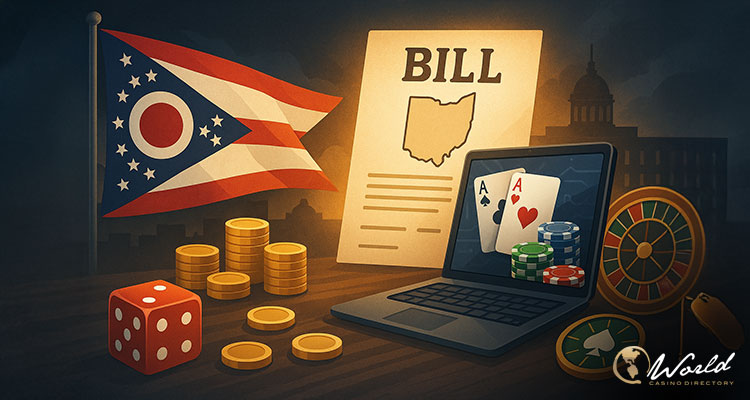Ohio is on the verge of considering new legislation that would allow residents to participate in online casino gambling, a move designed to create additional state revenue while avoiding controversial tax hikes. Representative Brian Stewart, a prominent Republican and Chair of the House Finance Committee, has confirmed that he is spearheading efforts to introduce a bill to legalize online casinos, including virtual poker and other games, to be accessible on mobile devices and computers. This bill aligns with recent efforts to adjust the state’s budget and provide alternative revenue streams without burdening taxpayers.
Building on past research and state support:
The push to legalize online gambling in Ohio is not new. Two years ago, a commission was established to investigate the potential for internet casino and lottery gaming in the state. After conducting research, the commission issued a report that found legalizing iGaming in other states had led to significant tax revenue increases, with higher participation rates and fewer detrimental impacts on physical casinos. According to WOSU, the report was backed by key Republican lawmakers, including Representatives Jeff LaRe, Cindy Abrams, and Jay Edwards, who emphasized that such legalization could help fund vital public services like K-12 education.
Rep. Stewart has consistently supported initiatives to expand gaming, and his proposed bill aims to take advantage of Ohio’s growing interest in digital gambling. According to Stewart, the iGaming proposal represents a modern solution to funding essential state services, particularly without needing to raise taxes. This is critical, as state lawmakers have increasingly opposed the tax increases proposed in Gov. Mike DeWine’s latest budget plan, notably in areas such as sports betting, marijuana, and cigarettes.
Concerns from traditional gaming stakeholders:
While the bill has gathered support among lawmakers who see the potential for added revenue, it has also raised concerns in Ohio’s traditional gaming industry. The state currently has four land-based casinos and seven racinos, and some operators fear that expanding online gambling could divert customers away from physical venues. However, the commission’s report suggests that internet gambling could enhance the overall market by reaching new players who may not typically visit land-based casinos or racinos, thus potentially increasing overall gaming revenue without cannibalizing existing businesses.
Despite these concerns, many legislators argue that the benefits, particularly in terms of additional tax revenue, outweigh the risks. This revenue could also support public services, such as K-12 education, which have been a priority in ongoing legislative discussions. Rep. Stewart’s proposal also emphasizes the need for a balanced regulatory framework that would ensure online gaming complements, rather than competes with, the state’s existing gaming infrastructure.
One of the key selling points for supporters of iGaming in Ohio is the potential for substantial revenue generation. According to the commission’s findings, states that have legalized online casinos have seen impressive increases in tax revenue, as online gaming platforms are able to attract large numbers of players and provide new opportunities for tax collection. Ohio’s lawmakers are keen to explore this option, especially given that the state’s current budget has no room for further tax hikes.
Additionally, some of the proceeds from online gambling could be allocated to education, particularly K-12 schools, which would be a critical development in light of ongoing concerns about school funding in Ohio. This proposal has found strong backing from education advocates who view it as a potential source of stable and sustainable funding.
Despite these potential benefits, opposition to expanding Ohio’s gambling industry has been vocal, particularly from lawmakers who worry about the social implications of increasing access to gambling. Some critics argue that the state’s current approach to gambling is already sufficient, and adding more gambling options could exacerbate issues related to addiction and social harm. Others worry about the financial impacts on local businesses, especially as many Ohioans still prefer the social atmosphere of in-person gambling.
Rep. Stewart’s bill is expected to address many of these concerns by including provisions that protect existing businesses while promoting responsible gaming practices. Nevertheless, the debate over online casino legalization will likely continue to play out as the state looks for ways to balance growth and regulation.


